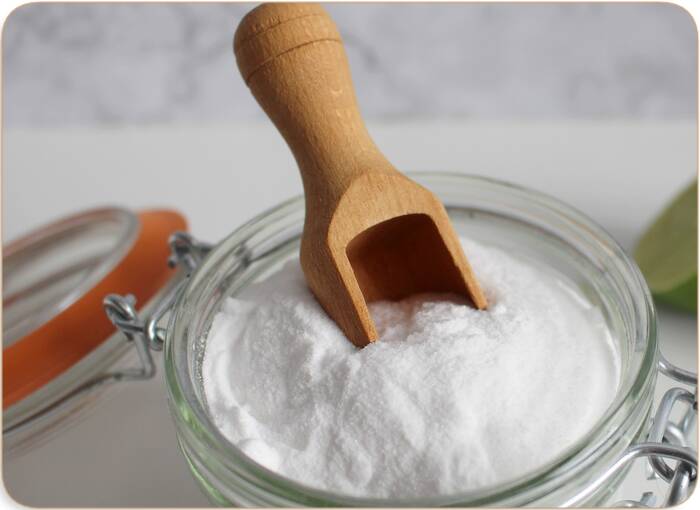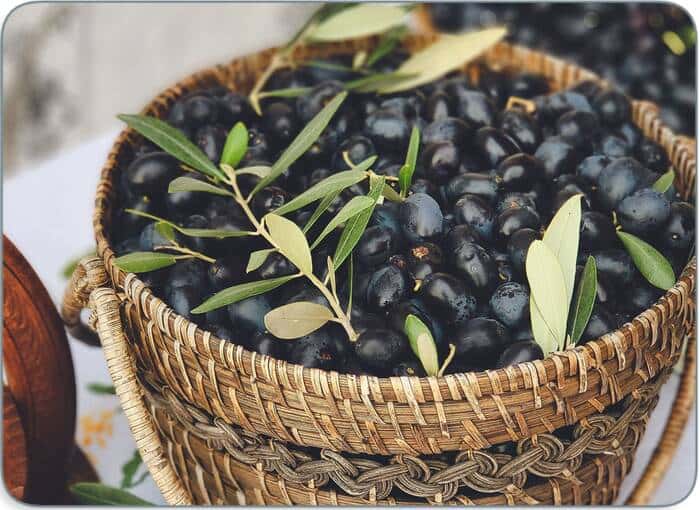Can baking soda be used to cleanse the liver? Is it effective? How to use it? In what recipe can it be incorporated? What are the other natural remedies to clean the liver organ? And finally, what are the possible side effects of baking soda?
I. Why Is It Necessary to Cleanse and Detox the Liver from Time to Time?
The liver is an organ that allows the elimination of waste in the body. The liver, pancreas, and gallbladder are the organs that keep track of food.
In addition to removing toxins, the liver is involved in the digestion of food and the extraction of vitamins from food.
A liver cleanse is essential to maintaining a healthy body. It allows the liver to continue to function optimally. If it is not cleaned often, the liver can become clogged. Toxins will no longer be processed and the body will be weakened and ill.
It is therefore important to perform a regular liver cleanse to detoxify the body. Thus, one gains energy and well-being.
II- Causes of Liver Disease
- Pay attention to your weight
- Exercise often
- Be careful with herbs and home remedies
- Avoid hepatitis diseases
- Drink coffee regularly
- Watch out for side effects of your medications
- Do not drink too much alcohol
- Eat organic food
III. Can Baking Soda Be Used to Cleanse the Liver?
Many options are available to effectively cleanse the liver. Baking soda is one of them.
1. Is Baking Soda Good for the liver
Baking soda, which is more like sodium bicarbonate, has a chemical formula quite similar to that of salt. It is alkaline and natural compound, which is even found in the soil.
As a member of the sodium carbonate family, baking soda is often used for health purposes. Its action on digestive problems is well known.
One of the main properties of baking soda is its ability to regulate the acidity of a given environment. This is what it does in nature, as well as in the human body.
Due to baking soda, the blood is made more fluid and its acid level is regulated. What bicarbonate does in the blood, it also does in the other organs of the body.
If it is not a direct action on the liver, it nevertheless reduces the work of cleaning it.
By purifying the entire digestive tract, bicarbonate helps the liver in its functions.
2. How to Use Baking Soda to Cleanse the Liver
Baking soda can be used as simply as possible, by diluting it in a glass and drinking the contents.
Another option to cleanse the liver with bicarbonate is to make a mixture. It is to drink a quantity of 200 ml of water, in which we will have added a teaspoon of bicarbonate, one of cider vinegar, and the juice of a lemon.
This liquid is to be drunk in the morning, on an empty stomach. And it would be more effective if you can wait to let it act for an hour before swallowing anything!
Bicarbonate and lemon are two very effective elements for the elimination of toxins. They can be combined for this purpose. To do this, add the juice of half an organic lemon and a teaspoon of bicarbonate to a glass of clear, warm water.
It is a mixture to be taken in the morning, on an empty stomach, for 2 weeks. After this period, it is important to take a break. This break should last at least 2 more weeks.
3. Sodium Bicarbonate for Liver Cirrhosis
Cirrhosis is a serious liver disease that can be fatal to the liver.
The main cause is the excessive consumption of alcohol for a long period.
But sometimes, it can be caused by a viral disease like chronic viral hepatitis or steatosis, which is rightly called non-alcoholic fatty liver disease.
This disease results in the destruction of the liver cells (hepatic).
Regarding the effect of sodium on cirrhosis, no scientific study has confirmed the usefulness of this natural product
to treat this disease, despite the effectiveness of this product to detoxify the liver and several other organs.
It is mostly recommended to drink bicarbonate to prevent liver diseases but not to cure them.
And the best method to prevent cirrhosis is to drink alcohol moderately and to treat liver diseases quickly without asking.
4. Is Baking Soda Good for Fatty Liver
Fatty liver disease or hepatic steatosis is an accumulation of fat in the liver.
Specifically, it is infiltration of triglycerides in the cells that are not dangerous in themselves. Except that they can evolve into a more serious disease like cirrhosis.
During the first stage, the liver cells are not damaged. This is the mild stage of the disease.
And in the second stage, the liver cells will start to be damaged and then affect even all the liver tissues.
Drinking lemon water with a little baking soda indeed helps to cleanse the liver of all the toxins that can slow down its function. And it brings back a lot of potassium, vitamin C, and antioxidants necessary for good liver health.
But unfortunately, it cannot cure this disease especially when it has arrived in an advanced stage.
And the only way to fight against fatty liver disease is to lose weight by practicing regular sports and following a low-calorie diet.
5. Can Baking Soda Damage your Kidneys?
Sodium bicarbonate in the presence of water decomposes into sodium on one side and bicarbonate on the other side.
Its presence in water transforms it into an alkaline solution, which can neutralize an acidic environment.
It is mainly for this property that sodium bicarbonate is often used to treat diseases caused by high acidity such as acid reflux.
In general, when used in small quantities and in a limited time cure, sodium bicarbonate is rather beneficial for the body.
But when it is used in large quantities and for a long amount of time, it can cause certain undesirable effects, such as kidney failure or kidney stones.
Baking soda in overdose causes a great deal of recurrent dehydration in the body, and the latter is usually the main cause of various kidney diseases.
It is then advised not to take more than the indicated daily dose of sodium bicarbonate and not to make very slow cures in time.
And that you should space out between two cures while making sure to drink a lot during the cures.

IV. Is It Dangerous to Drink Baking Soda?
Baking soda is excellent for your health. It is safe to drink it, but not to excess.
Alkalosis is one of the risks of taking too much baking soda.
In addition, bicarbonate should be avoided in cases of gastritis, high blood pressure, and heart problems.
If you are already taking medication, it is best to consult your doctor before taking bicarbonate. The absorbing capacities of this product can affect the effectiveness of treatment.
V- Best Food for Liver
- Water
- coffee
- tea
- grapefruit
- Grapes
- blueberries
- cranberries
- Hazelnuts
- Nuts
- Almonds
- Broccoli
- Cruciferous vegetables
- Spinach
- Prickly pear
- Beet juice
- Avocados
- Garlic
- Olive oil
- Fatty fish
- Oatmeal
- Complex carbohydrates

VI. Other Remedies for Natural Liver Cleansing
# Plants:
Some plants have detoxifying properties. These include artichoke leaves, dandelion leaves, and milk thistle. But before using them, it is prudent to seek advice from a doctor.
# Lemon Juice Drinks:
Not only does it rehydrate the body, but lemon juice also promotes the elimination of toxins. In a liter and ½ of water, you should dilute a lemon and drink the mixture throughout the day.
# Green Tea:
Green tea is a product very rich in antioxidants. Because it contains polyphenols, green tea drains fat from the blood and improves heart health.
Studies have shown that if consumed frequently, green tea would prevent the stiffness of the liver. It would also decrease the risk of liver cancer.
# Green Vegetables:
These are antioxidants that help eliminate toxins in the body. These are vegetables such as cabbage, spinach, or broccoli.
Their consumption greatly promotes liver health and gives the necessary nutrients for the general functioning of the body.
# Beets:
The liver needs iron, and beets have enough of it. This allows them to strengthen the health of the liver.
In addition, they also have antioxidants and folic acid. Their benefits go to the whole body.
VII. Side effects of Baking Soda
Metabolic alkalosis is one of the risks of too much baking soda consumption. It is a too high acidity level in the blood.
It is also possible to develop drop-in potassium, or even heart failure or pulmonary edema.
The consumption of baking soda must be done according to strict dosages to avoid these disorders.
Useful Links:
A microbiological and clinical study of the safety and efficacy of baking-soda dentifrices
Association between sodium bicarbonate consumption and human health: A systematic review